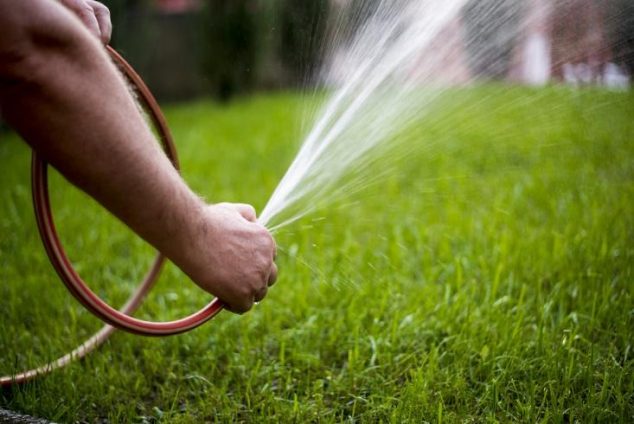Yard care isn’t easy — and it’s even less easy if you are committed to avoiding the use of synthetic chemicals and toxic compounds. Lawns, especially, require an abundance of care, and to cut down on the man-hours and money required for maintenance, most homeowners rely on definitely not organic solutions.
It is possible to enjoy a lawn free from environmentally un-friendly chemicals — the question is whether or not you are willing to devote the right resources to making your organic lawn dreams come true. Here’s a guide for making organic lawn care simpler and more affordable to help you achieve your goals.
Outsource
While DIY might feel rewarding, it usually isn’t financially wiser than relying on experts to achieve your goals, especially in a complex field like organic lawn care. Organic lawn maintenance service providers not only have all the knowledge required to keep your lawn healthy using safe materials and methods, but they can do so at a fraction of the price that you can — plus they can deliver their expertise immediately, which is far superior to the time it will take you to accumulate the right knowledge and tools. Many well-known and trusted lawn care firms like TruGreen have organic services on offer, so you should call around to a variety of service providers in your area to find the best option at the right price.
Purchase
If you are committed to delivering your own organic lawn care, you need to know what products are safe to use on your lawn. First, it’s important to note that “organic” isn’t synonymous with “toxin-free.” In fact, many so-called organic fruits and veggies at the grocery store still contain traces of pesticides, herbicides, chemical fertilizers and other poisons. While “certified organic” produce has a limit on the amount of toxins permitted, outside of products controlled by the USDA, “organic” is largely a buzzword meant to grab your attention and encourage you to buy. The same is true of “natural” or “eco-friendly.”
That’s why you need to know what to look for when buying organic products for your lawn. You should be familiar with ingredients, so you can identify when products are truly organic, and when they are misrepresenting themselves to get your dollar. This will take time and research; you can sign up for classes online or at your local community college for in-depth and cutting-edge information.
Usually, you can trust the company and brand name once you identify a product that doesn’t contain bad stuff. Generally reliable organic lawn care brands include SummerSet and Dr. Earth. On the flip side, you should avoid companies and brands that notoriously use noxious chemicals for garden and lawn care. A good example of the latter category is Monsanto and Round-up, which has been shown to cause cancer in users.
However, perhaps more important than the products you use is the care you give your lawn — which is why the bulk of this post will concern best lawn care practices to ensure your lawn starts its organic journey from a place of health.

Water
Watering is the task that kills or otherwise hinders the health of most ailing lawns. Most homeowners know too well that their lawns need water, but they don’t understand how different means and methods of watering can affect lawn health. The amount of water you provide your lawn depends on your soil type and climate; hotter, drier regions will need to water more, and homeowners with more clay content in their soil will need to water less. Your goal is to get 1.5 inches of water into your lawn every week, and the fewer times you water, the better. Thus, instead of programming your sprinklers to run every morning, you should schedule them to run one or two mornings per week for longer periods.
Mow
Mowing seems like a chore centered around ensuring that a lawn remains attractive, not healthy. However, the truth is that lawns need to be mowed to retain their health. Grass that is too tall or too short will struggle; it might not retain moisture effectively, or it might become thin and malnourished. It’s important to mow about once per week during your lawn’s active growing season, which is spring and fall for cool-season grass or summer for warm-season lawns. You should research online to learn exactly what height your particular grass variety thrives at, and you should always keep your mower blades sharp to ensure a clean cut.
In the long run, you’ll enjoy more freedom and security using an organic lawn service to care for your lawn — but you’ll gain more insight into the world of organic lawn care and gardening by jumping head-first into research. Whichever path you choose, you should know that maintaining a chemical-free yard will be difficult, but it will be so worth it in terms of health and wellness for you, your loved ones and the environment.

